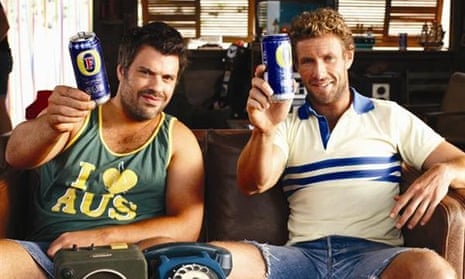Ads selling beer are well known for portraying men “escaping” their wives to enjoy a refreshing pint, or for objectifying women as their main selling point. The Campaign for Real Ale recently came under fire for distributing leaflets featuring corset-clad models.
Meanwhile, sexist beer names abound, from British beers such as BrewDog’s Trashy Blonde, Celtic Marches’ Slack Alice, York Brewery’s Naughty Noelle and Hornbeam Brewery’s Knicker-Mocha-Muffdive to US brews such as Bare Ass Blonde, Tramp Stamp, Leg Spreader and Psychotic Blonde. They are often matched by explicit and misogynistic pump-clip images.
What’s even worse is that the “jokes” often veer towards the territory of sexual violence. One US beer is entitled Thong Remover Tripel, while another allegedly named “Mouth Raper” hit the headlines last year. Bud Light apologised just last month after running a campaign called “Up for Whatever”, with the slogan “The perfect beer for removing ‘no’ from your vocabulary for the night”.
But now Alan Clark, the head of the company SABMiller, which owns Foster’s, Grolsch and Peroni, has said that it is time to move on from advertising campaigns that are “dismissive” or “insulting” to women.
“Peroni has moved away from the lager lout college frat impact,” said Clark. “Beer now has associations with fashion, art and design. The world has moved on from lads telling jokes on a Saturday and high volume consumption. Beer is now drunk by women and men together.”
There is a powerful business case for beer companies to abandon the puerile misogyny and step into the 21st century. The Daily Mail reports that the number of female beer drinkers in the UK has doubled to 1.3 million in recent years, and that women make up 31% of weekly beer drinkers.
And let’s not forget that it’s not only women who might be offended by overtly misogynistic marketing – companies risk alienating a significant number of male customers too.
There’s clearly an appetite for a fresh approach – women are so sick of beer-related sexism that a brewery in Brazil last month launched a “feminist beer” to counter the industry’s misogynistic adverts. Meanwhile, a new beer festival named FemALE was launched in Norwich last year to celebrate female brewers.
The debate comes at an interesting time – a new study released this month by marketing technology firm Rocket Fuel has revealed that consumers are four times more likely to respond to online adverts featuring men than those depicting women. The study, which examined nearly 40,000 banner adverts over a six month period, is perhaps another suggestion that sticking a semi-naked woman next to a product isn’t necessarily the most inventive or effective way to sell it.
Clark’s comments have been met in some quarters with the predictable cry that the industry shouldn’t give in to PC warriors, and should continue to stick to what it knows. But why should companies use advertising that demeans a core part of its customer base? Both human decency and cold, hard figures seem to suggest that it’s time for beer companies to wake up and move on from tired, sexist stereotypes.

